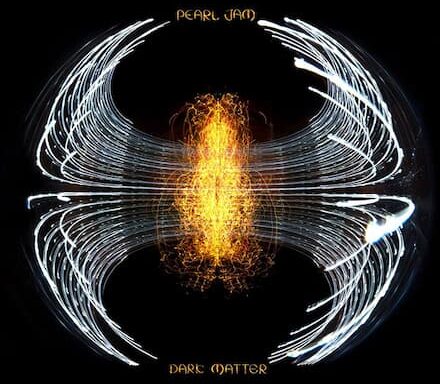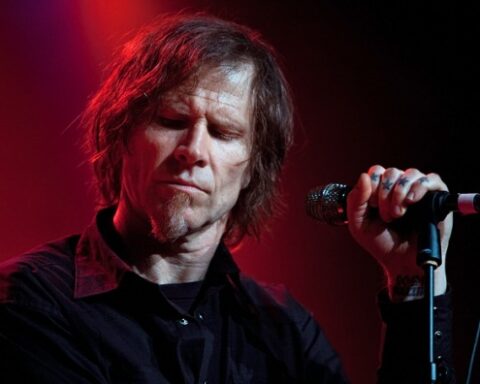A statue of the late Soundgarden/Audioslave frontman and rock music legend, Chris Cornell, was recently unveiled in Seattle.
I haven’t been able to figure out how I feel about this monument, or what it’s meant to represent, or for who’s sake it has been erected.
My instinctive reaction to the images of it are that it seems like a tacky thing to do: and also seems like something Chris Cornell himself would not have wanted.
While my sense of it isn’t as pronounced as it was with the tacky-as-fuck Kurt Cobain statue in Aberdeen, Washington, I still tend to think Cornell would never have wanted a statue of himself erected. I was so sickened by the Cobain statue that I wrote a scathing article about it ages ago, pointing how much the statue (or even the idea of a statue) was at odds with Cobain’s sensibilities and personality: not to mention the fact that the statue itself (pictured below, complete with tear falling from eye) was just a monstrosity conceived in the poorest taste.
Cornell’s statue isn’t as bad as that.
Unlike Cobain’s statue in Aberdeen, Cornell clearly had an affinity with Seattle and the Seattle scene – whereas Cobain loathed and resented his childhood hometown of Aberdeen.

But there’s still something about it that makes me uncomfortable.
I absolutely adore both Kurt Cobain and Chris Cornell: they’re probably my two biggest heroes and have been for most of my life. But they were both down-to-earth types of people: musicians and artists more than ‘rock stars’, and neither of them interested in ‘celebrity’ or in self-aggrandizement.
Both Cobain’s and Cornell’s legacies are in their music and their art – those are their ‘monuments’, which are imperishable and long-lasting.
The idea of statues seems to take them – probably against their wills – into the kind of tacky idolisation realm of larger-than-life parodies-of-themselves like Elvis Presley or Michael Jackson. I just don’t see Cornell approvinng of that.
There’s also something that feels incongruous about erecting statues to people who – at least according to the official stories – took their own lives. I’m not sure I can adequately explain why I think that feels incongruous: but it’s kind of along the same lines of what always made me horrified about reproductions of Kurt Cobain’s suicide note appearing on t-shirts.
I don’t know. The statue obviously makes someone happy – otherwise it wouldn’t exist. And if Cornell’s family and friends are happy with it, then who am I to question its existence?
The matter might be further aggravated by the fact that I’ve for some months started to change my mind about whether Chris Cornell took his own life or not. I don’t know what I think anymore – I am certain of nothing. My initial view – that he did kill himself, perhaps in the midst of an imbalance caused by his medication – is still probably my overriding opinion: but where it used to be about 90/10 in my mind that he took his own life, I’m now hovering closer to something like 60/40 – due to the fact that I started opening myself up more to the proponents of the conspiracy-theory view of what happened that night at the Fox Theater in Detroit.
I had consciously avoided most of that for about a year after Cornell’s death: because I was so emotionally effected by Cornell’s death (and particularly the manner of it) that I didn’t want to deal with any of that stuff or any of those questions.
It’s only in the last six months or so that I’ve opened myself up to all the people who think Cornell was murdered: and I have to say that there is definitely a case to be made, even if I’m not 100% convinced yet.
It’s something I’m going to look at more in the next few months – until I’ve reached some kind of conclusion to my satisfaction (although ‘satisfaction’ is admittedly the wrong word – there’s never going to be anything satisfying in any of this).
But those concerns/uncertainties probably play somewhat into why I find the Cornell statue in Seattle a little uncomfortable.
Read more: ‘Chris Cornell – An Ode to His Gifts & Our Good Fortune‘, ‘Did SOUNDGARDEN Make the Last Great Rock Album…?‘, ‘Scott Weiland: A Dismayed Farewell to a Rock God‘, ‘Nevermind the Bollocks – This is the Real Legacy of Kurt Cobain‘, ‘Layne Staley – Still in Mourning‘…





I don’t want to be a conspiracy cook, but the first thing i thought of when i saw this statue was his hand. I know its supposed to look like he’s rocking with a plectrum in his hand, but it does look a suspicious lot like the ‘moloch-worship’ illuminati hand sign, does it not? Wonder who designed the statue, maybe a twisted ‘wink’ to the insiders to let them know who took out Chris? For people unaware on the subject, should read up on vigilant citizen.
That’s a good observation actually, Smoothsailing. I hadn’t really noticed that. But, now you mention it, Detroit (where Cornell sadly died) was also where a major Satanic temple was opened in the last couple of years, complete with a Baphomet statue making a very similar hand-signal. You might be on to something.
Seems like a substitute for controversial historical figures but since there were conspiracy theories of several murdered figures among rock mucisians that might have been a consideration as well. When rock music and culture appears to be supported by the elites, I associate it with Lyndon Larouche et al. From their point of view rock culture including drug use was part of an assault against other cultural elements which the elites wanted to erase. And a way to divert energy away from rational political activity.
I have no opinion of my own about that and I never found rock music offending.
However it was interesting to me that Larouche mentioned that his young coworkers were recruited among that part of the 1968ers, who werent dragged into the then evolving cultural phenomena.
While a bit OT I felt compelled to bring it up.
I don’t know. There could be some truth in that. It should be said though that – in various decades – rock musicians and icons (some of them anyway) were very political and were – if anything – encouraging young people towards political awareness and activism rather than away from it.
What particular artists do you have in mind?
Off the top of my head: John Lennon, Bob Marley, possibly Bob Dylan, Neil Young, and a few others. Some of the punk era musicians (Joe Strummer and the Clash included). And more modern(ish) and entirely anti-establishment rock groups like Rage Against the Machine. Those voices are there – they’re not always necessarily the most mainstream recording artists.
Bob Marley was used to pump up profitable drugbusiness in Jamaica. That may have been the main reason for boosting his career. What about his idol the Lion of Judah? He allowed the Cia and Mossad to use his country as a base for dirty operations against other countries.
But I think he became weary about it in 1974 already and I dont want to make too much of it.
Other than noting that his religion seems a bit odd. As if encouraged to support zionism.
African leaders are otherwise never allowed to obtain that kind of status.
Dylan belonged to the moneyed class and was coopted by the Us elites to pose as a fake protest singer to divert young people away from real opposition.
His contemporary colleagues didnt see him as genuine.
But wasnt he making good works? Yes but he is believed to have been assisted by ghostwriters.
Guesses about Leonard Cohen and Paul Simon have been put forth.
Miles Mathis , who some suspect for being a british agent, has suggested that he can see how Dylans career stages demonstrate when he fell out of grace with respect to his elite handlers and back again.
Lennon and the Beatles are believed to have been coopted by the elites, Thavistock inst.
And the supposed reason for his assassination is that he decided to break with that project.
I am not saying this means the Beatles were enthusiastic about it or even fully understood the manipulative context. I wouldnt blame them. But I think Mathis is right when he says all celebrities are part of an elite psychological manipulation (to use my own words).
I’m open to most of what you’re saying there; particularly about Dylan, which I’ve come across before.
If Lennon was part of that, I very much doubt he remained part of it: his behaviour after a certain point in time doesn’t tally with that kind of agenda, in my opinion.
On the more general point, I think you’re probably right that Celebrity brands and icons are part of the psychological manipulation: there seems to be a ton of evidence to support that, especially in regard to current celebrities and pop stars. However, I was about to disagree that *all* celebrities are part of that programme – but then I realise that we may be just disagreeing on wording and semantics. If you mean ‘celebrity’ as in a certain level of fame, influence and coverage, then you’re probably right. But I would argue that there are people (musicians, actors, sports stars, etc) who are *famous* but who aren’t necessarily ‘Celebrities’ – and that’s where I’m kind of drawing a rough line. There are people who are just very good at what they do or are very successful at their craft, strike a chord with people and gain a genuine following – without any of it being manufactured, mass promoted, and without them necessarily being part of the Club.
In keeping with this specific article, Chris Cornell was famous on account of a lot of people liking his music or following his career: but he was never a ‘celebrity’ or even a household name.
Curiously though, shortly before his death he had said one or two things that maybe indicated he was uncomfortable with certain people or cliques he had been exposed to. A month or so before he died, he had an onstage rant about ‘billionaires’ who ‘don’t care about any of you (he said to the audience) or about people like me’. And elsewhere he put out online messages that just said ‘No More Billionaires’ and, I think, another one right before he died that just said ‘No More Bullshit’.
It seems pretty clear to me that he was nonplussed by the kind of circles he was probably being introduced to – having previously come from a very down-to-earth music scene in Seattle, where most of the artists didn’t really have any intention of being famous or selling millions of records.
Like that you’re not persuaded on the cause of his death. Moving-with investigations and exposures, able to remain open, shifting as and when. My brief look-into — and Cobain’s — lead to compelling signs and evidence suggesting murder. Seems too improbable in light of details and background, to be at all confident, in the idea of suicide. Yet, we’re left with more — never likely found out/s. As with the latest and last few incidents in the States and alleged mass shootings. Scratch a bit and — full of holes. Will any of this be an issue one day? How about a death-bed confession here and there? More the challenge is who cares enough, to be public and then… toward… what happens? The uncomfortable aspect and the statue is the likely mocking elite behind the crime. Can’t quite work out what they get from this, or what they think, are achieving. Then there’s the art. Makes me want to hear to appreciate and try-forget what might have gone on. Played Nirvana ‘Come as you are’ a couple of three times recently. Read you suggest ‘SOUNDGARDEN’s ‘Down On the Upside’: Was This the Last Great Album of the Era…?‘ — with Blow Up the Outside World’ one of the stand-outs from the Cornell catalogue. Will give it a few bursts on the weekend. And so… write on m’man, else the relative silence will increase the disturbance and darkness. Tar v.much.
Give it a go, Mark. Soundgarden. And so some Audioslave. Nirvana too, of course – can’t go wrong there.